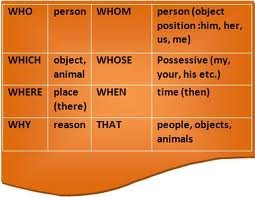Participle itu sendiri sebenarnya adalah turunan dari kata kerja (verb). Ada 2 (dua) jenis participle, yaitu;
- Present participle, yang dikenal sebagai kata kerja (verb) berakhiran -ing, contoh; interesting, drawing, amazing, shocking, dsb.
- Past participle, atau dikenal sebagai kata kerja ke-3 (verb 3), contoh; interested, drawn, amazed, shocked, dsb.
A. Perbedaan antara Present Participle dengan Past Participle
Sebagai kata sifat, kedua jenis participle ini memberikan makna yang berbeda terhadap kata benda yang dibicarakan. Lihat contoh kalimat yang menggunakan participle di bawah ini:
- Winning the match was an exciting experience for the players. (Present participle)
- The excited players were celebrating the victory. (Past participle)
Present participle pada contoh no. 1 memiliki makna aktif, yaitu menyebabkan atau melakukan sesuatu. Kata benda (noun) ‘experience’ menyebabkan sesuatu hal, sehingga disebut sebagai ‘exciting experience'.
Sedangkan, past participle memiliki makna pasif. Kata benda (noun) yang dimaksud menjadi obyek dan terdampak oleh berbagai situasi. Pada contoh no. 2, kata benda "players" menjadi obyek dari sesuatu, sehingga disebut sebagai ‘excited players’.
B. Daftar Participial Adjective
Kenalilah beberapa participial adjective yang ada di dalam daftar berikut dan cobalah memahami maknanya. Lengkapilah daftar ini dengan participial adjective yang kalian ketahui.| Verb | Present Participle | Past Participle |
|---|---|---|
| bore | boring | bored |
| excite | exciting | excited |
| confuse | confusing | confused |
| sort | sorting | sorted |
| surprise | surprising | surprised |
| enclose | enclosing | enclosed |
| include | including | included |
| amaze | amazing | amazed |
| astonish | astonishing | astonished |
| terrify | terrifying | terrified |
| disappoint | disappointing | disappointed |
| break | breaking | broken |
| write | writing | written |
| interest | interesting | interested |
| threaten | threatening | threatened |
EXERCISES
A. Horse Race Game
To win the horse race. Choose the correct answer for each of the following sentences. Only the fastest answer can get the full score and all others get only half a point. Now, let's get the race started.B. Sentence Completion Exercise
Do the following exercise. Use either present participle or past participle of the verbs in the brackets.- The ... announcement has raised questions among the students. (confuse)
- The ... students did not know what uniform to wear on the following day. (confuse)
- The ... film caused me to fall asleep. (bore)
- The ... audience fell asleep during the speech. (bore)
- The ... brochure provides tourists with the information they need. (enclose)
- The team were ... when they heard about the approval. (excite).
- I was very ... to see what was happening at that time. (shock)
- This is one of the most ... books I’ve ever read. (interest)
- The children soon fell asleep after the ... journey. (tire)
- Our vacation was ruined by the ... experience. (frighten)
- Aceh was completely destroyed by a ... tsunami on December 26, 2004. (devastate)
- The process of repairing ... buildings and streets took years to complete. (damage)
- The snake is still a ... sight for most women. (terrify)
- The ... workers sat down to rest under the shade of a tree. (exhaust)
- His experiences in Jakarta were rather .... (depress)
- The woman was trying to comfort the ... child when a policeman came. (cry)
- Lapindo tragedy clearly wiped out many ... business opportunities in the area. (promise)
- To anticipate the ... volume of air passengers in the holiday season, the airline has added more than 40,000 seats to 14 routes. (increase)
- The new ... system is equipped with an advanced protection system. (operate)
- A month after the theft, the ... jewelry was recovered. (steal)




